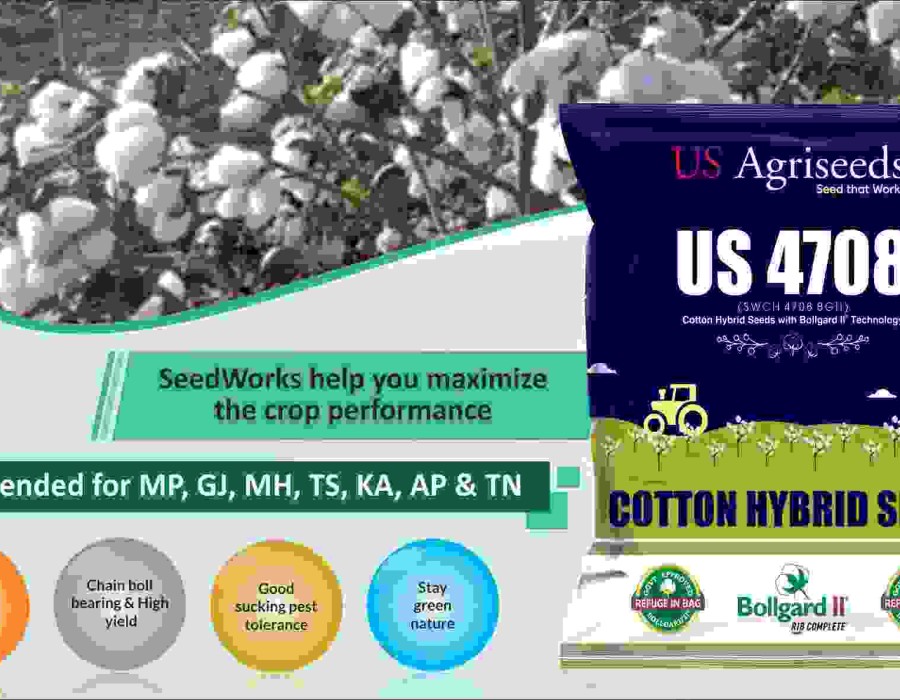Cotton farming has long been a crucial part of the global agricultural landscape, providing raw materials for textiles, oils, and other products. However, as the world grapples with climate change and the need for more sustainable agricultural practices, cotton farming must evolve. Cotton seed companies play a pivotal role in shaping the future of cotton farming by providing innovative solutions that help farmers transition toward more eco-friendly methods. This blog explores the role of cotton seeds company in promoting sustainable farming practices and how they are paving the way for a greener future.
The Role of Cotton Seed Companies
Cotton seed companies are the cornerstone of innovation in the cotton farming industry. These companies focus on developing high-quality cotton seeds that are not only resistant to pests and diseases but also more efficient in their use of water and nutrients. By investing in research and development, cotton seed companies are empowering farmers with tools that enable them to grow crops more sustainably, reduce environmental impact, and increase yields. This role is critical in the ongoing effort to make cotton farming both profitable and environmentally responsible.
Advancements in Cotton Seed Technology
One of the key areas of innovation within cotton seed companies is the development of genetically modified (GM) cotton seeds. These seeds are engineered to withstand pests and diseases more effectively, reducing the need for harmful pesticides and herbicides. Additionally, some GM cotton varieties are designed to use water more efficiently, which is particularly important in regions facing water scarcity. These technological advancements help farmers reduce input costs and minimize their ecological footprint.
Promoting Water Efficiency
Water usage in cotton farming has always been a concern, especially in regions where water is a scarce resource. Cotton seed companies are increasingly focusing on developing drought-tolerant cotton seeds. These seeds are bred to thrive in less-than-ideal water conditions, making them perfect for farmers in arid and semi-arid regions. By using less water while maintaining high productivity, drought-tolerant cotton seeds allow farmers to continue growing cotton without putting excessive strain on local water supplies.
Reducing Chemical Usage in Cotton Farming
The conventional cotton farming practices often rely heavily on chemical pesticides, fertilizers, and herbicides. These chemicals can cause significant harm to the environment, from soil degradation to water pollution. Cotton seed companies are addressing this issue by creating cotton varieties that are resistant to pests and diseases, reducing the need for chemical treatments. Integrated pest management (IPM) practices, combined with the right seed technology, enable farmers to grow healthier cotton while minimizing their reliance on harmful chemicals.
Enhancing Soil Health
Healthy soil is the foundation of sustainable agriculture. Cotton seed companies are exploring ways to help farmers improve and maintain soil health. By developing cotton seeds that are more resistant to soil-borne diseases and pests, these companies reduce the need for chemical interventions that can harm soil microbiota. Furthermore, some cotton varieties are designed to promote better root growth, improving soil structure and enhancing the soil’s capacity to retain nutrients and water. These practices help build long-term soil health and sustainability.
Biodiversity Conservation through Sustainable Farming
Sustainable farming isn’t just about reducing environmental damage; it’s also about enhancing biodiversity. Cotton seed companies are working to create seeds that support agricultural biodiversity. For instance, some seed varieties are designed to grow well in rotation with other crops, allowing farmers to diversify their farming systems. Crop rotation promotes healthier ecosystems by preventing the depletion of soil nutrients and reducing the buildup of pests and diseases. It also helps preserve wildlife habitats by promoting a balance between different types of crops and natural vegetation.
Carbon Footprint Reduction
Climate change is one of the most pressing issues facing agriculture today. Cotton farming is no exception, as it contributes to greenhouse gas emissions through fertilizer use, fuel consumption, and land use changes. Cotton seed companies are developing seeds that are not only more efficient in their resource use but also contribute to carbon sequestration. Certain cotton varieties are designed to grow quickly, enhancing the plant’s ability to absorb carbon dioxide from the atmosphere. By improving the overall efficiency of cotton farming, these seeds help reduce the carbon footprint of the industry.
Empowering Small-Scale Farmers
Sustainability is not only about large-scale farms but also about empowering smallholder farmers who are the backbone of global cotton production. Cotton seed companies are increasingly providing small-scale farmers with access to high-quality, sustainable seeds that can improve their yields and incomes. These farmers often face significant challenges, including limited access to resources, technology, and financial services. By working closely with smallholders, cotton seed companies can help them adopt more sustainable practices and improve their livelihoods.
The Importance of Education and Support
While developing innovative seeds is essential, cotton seed companies understand that sustainable farming practices go beyond just the seeds themselves. Education and support are crucial to ensuring that farmers can successfully adopt and implement these practices. Many cotton seed companies provide training programs, technical assistance, and access to resources that help farmers understand sustainable agricultural practices. This holistic approach ensures that farmers are equipped to make informed decisions and maximize the benefits of sustainable cotton farming.
Conclusion: A Greener Future for Cotton Farming
As the world faces the challenges of climate change, water scarcity, and environmental degradation, the role of cotton seed companies in promoting sustainable farming practices has never been more crucial. Through innovations in seed technology, water efficiency, reduced chemical usage, and soil health enhancement, these companies are helping to build a greener future for cotton farming. By empowering farmers with the tools and knowledge they need, cotton seed companies are fostering a more sustainable and profitable cotton industry. The road to sustainability is long, but with continued innovation and collaboration, cotton farming can thrive while minimizing its environmental impact.






Comments